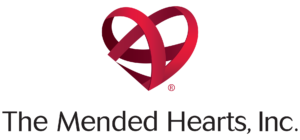The evidence to support the power of peer-to-peer support in improving outcomes for those living with chronic diseases (e.g., diabetes, mental health, heart disease, kidney disease, cancer, HIV/AIDS, substance abuse) is abundant. Through peer support programs, individuals commune to share common experiences and provide compassionate support as they navigate familiar health care systems and settings. This socially driven model of care provides a level of validation, understanding and acceptance that is often missing in professional settings and even some personal relationships.
Research shows that ongoing and organized peer support is effective in reducing health disparities, promoting health maintenance and increasing access to health care resources, programs and information that will help improve a person’s quality of life. Several known benefits of peer support include:
- Improved adherence to medication and greater self-management of chronic illnesses
- Reduced feelings of isolation and depression
- Improved emotional and physical well being
- Less hospital visits and readmissions
That’s why CURA loves to partner with health care organizations that value peer-to-peer support and help facilitate connections for individuals living with chronic diseases. We are honored to currently support The Mended Hearts, Inc., the Polycystic Kidney Disease Foundation, and the IGA Nephropathy Foundation as they work to improve the health care journeys of their members.
Here are three key tips we’ve learned during our work launching and supporting peer support programs:
- Develop a detailed launch and roll-out plan, complete with an application and role description for interested program participants. This will ensure that you capture the attention of a diverse audience looking to get involved. Be sure to properly define your goals, identify your target audience and stick to your launch plan!
- Create an onboarding and training process. Sustainable peer support programs involve ongoing training, education and/or engagement opportunities. A training process and consistent communication ensures that peer support group members remain connected and are continuing to engage their communities with valuable resources and information.
- Create opportunities for your peer support group members to share their stories and serve as spokespersons for your community. This can be through media and news outlets, public awareness events, local events, etc. It’s critical that others in their community view their peers as a resource and support system.
Three clients doing it right
 The Mended Hearts, Inc. has one of the largest peer support programs for the cardiovascular community in the U.S. Analysis of data from thousands of hospitals concluded that hospitals with organized Mended Hearts visiting programs are significantly more likely to have better readmission rates for heart failure patients than other U.S. hospitals. Learn more about how peer support programs like Mended Hearts are keeping people out of the hospital.
The Mended Hearts, Inc. has one of the largest peer support programs for the cardiovascular community in the U.S. Analysis of data from thousands of hospitals concluded that hospitals with organized Mended Hearts visiting programs are significantly more likely to have better readmission rates for heart failure patients than other U.S. hospitals. Learn more about how peer support programs like Mended Hearts are keeping people out of the hospital.
 The Polycystic Kidney Disease Foundation’s (PKDF) Peer Ambassadors Program was created to help Black/African American and Hispanic/Latino polycystic kidney disease (PKD) patients and advocates connect and educate others about disease management. PKDF wanted to elevate awareness of their ADPKD Registry and broaden access to valuable PKD resources. We partnered with PKDF to develop a program framework, recruit vocal PKD leaders and advocates to serve as Peer Ambassadors, and host a kickoff informational webinar. We are currently supporting Peer Ambassadors in executing awareness events and activities in their communities.
The Polycystic Kidney Disease Foundation’s (PKDF) Peer Ambassadors Program was created to help Black/African American and Hispanic/Latino polycystic kidney disease (PKD) patients and advocates connect and educate others about disease management. PKDF wanted to elevate awareness of their ADPKD Registry and broaden access to valuable PKD resources. We partnered with PKDF to develop a program framework, recruit vocal PKD leaders and advocates to serve as Peer Ambassadors, and host a kickoff informational webinar. We are currently supporting Peer Ambassadors in executing awareness events and activities in their communities.
 Launched on July 24, the goal of IgAN Foundation’s Ambassador Program is to train a select group of inspired patients and advocates to empower others to take charge of their kidney health and advocate for better treatments. CURA worked with IgAN to refine their program framework and develop recruitment/promotion materials. We’re currently helping them prepare the Ambassador Program kick-off and training process. Learn more about our partnership with IgAN Foundation.
Launched on July 24, the goal of IgAN Foundation’s Ambassador Program is to train a select group of inspired patients and advocates to empower others to take charge of their kidney health and advocate for better treatments. CURA worked with IgAN to refine their program framework and develop recruitment/promotion materials. We’re currently helping them prepare the Ambassador Program kick-off and training process. Learn more about our partnership with IgAN Foundation.
CURA is proud to support clients who understand that it takes more than medicine to treat people. We are witnessing the positive impact of peer support programs in the chronic disease space and look forward to working with other organizations to bring their communities together.
